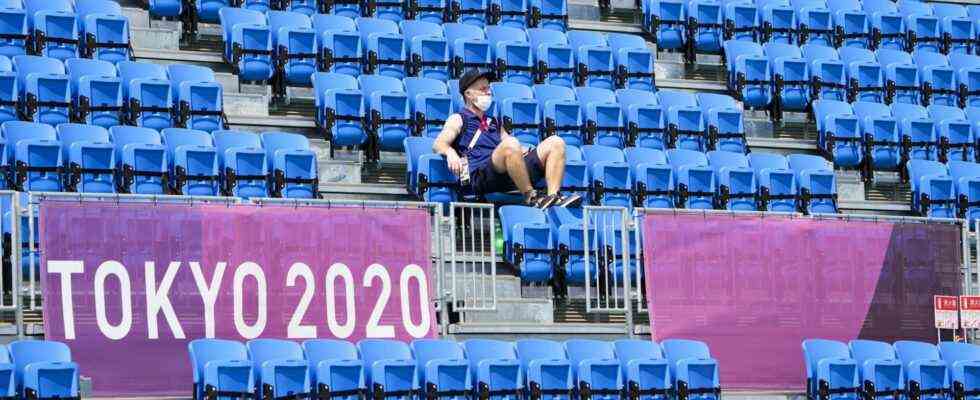Status: 23.07.2021 1:24 p.m.
There is a lot of money at stake in Tokyo – for the Olympic Committee, sporting goods manufacturers and many other corporations. But sponsors have distanced themselves in advance. Is there a risk of economic failure?
The Olympic Games are not just about top athletic performance. The economic significance of the event is usually also enormous. The games are particularly interesting for the advertising industry. “This is simply the sporting event with the greatest number of athletes, the greatest number of spectators and the media following this event,” says Tim Ströbel, Professor of Marketing and Sports Management at the University of Bayreuth. “That is of course the absolute unique selling point of this sporting event.”
That’s why companies like Coca Cola, Adidas and Toyota spend a lot of money. They hope that this will increase their brand awareness – but not only. “But it’s also about image goals, that’s the second big point. Image improvements, including emotional charging, so to speak, through this connection to sport,” says Ströbel.
Reverse effects
The Japanese companies alone have made around three billion dollars for advertising rights this year. Add to this the cost of television commercials that people see around the world. The US broadcaster NBC alone earns $ 1.2 billion from advertising mail.
Toyota has been one of the top sponsors of the games since 2015. But in the past few days, the Japanese automaker has distanced itself, and with it other corporations such as Panasonic and the tire manufacturer Bridgestone. They also stay away from the opening ceremony. “They just want to send a signal that they actually do not agree with the games, so as not to attract the anger of the population,” says Stefan Riße, capital market strategist at Acatis Investment.
Attempt to limit the damage
Because in Japan they fear a new corona wave. The number of new infections is already increasing every day. But the sponsorship contracts have been signed – and at least the stock exchange is looking forward to the games calmly, despite the worries, says analyst Riße. “Toyota will not suddenly sell ten percent fewer cars and Adidas will not experience a drop in sales of ten percent because the Olympic Games are not going as well as they had imagined. In this respect, the share prices initially take no notice.”
But the image of Toyota, Panasonic & Co. is suffering, says marketin expert Ströbel from the University of Bayreuth. “They may be doing something like damage control, although I honestly don’t see that as the best strategy to say now, ‘We’re holding back a little now and we’re not communicating as strongly now.'” It’s not that simple in the world of the Olympic Games either – there are too many interests of sports associations, politics and business at stake.
The ring business – who will benefit from the Olympics?
Constanintin Röse, ARD Börse, July 22, 2021 4:30 p.m.

